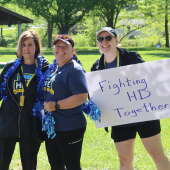Legislators want to hear viewpoints
If you have a question, e-mail factorfiction@semissourian.com or call Speak Out (334-5111) and identify your call as a question for "Fact or fiction?"
Q: What does a U.S. representative do when I call in to express my opinion about a certain vote coming up? Do they really care about what I have to say, or am I wasting my time? -- Herline Bowers, Scott City
A: Lloyd Smith, chief of staff for U.S. Rep. Jo Ann Emerson, said your communication is important. "We welcome input by telephone, e-mail or letter on any issue or concern that any constituent in the 8th District might have." The process for how this communication is handled depends slightly on the form, explained Smith.
"Let's suppose it's a phone call around specific legislation, and a number of different groups are encouraging folks to call. If the calls are the same, because they're using a similar script, they're compiled into one master list and shared with Jo Ann," said Smith.
"For example, the master list would indicate we had 68 calls in favor and 53 against a particular issue. If it's a real hot issue, the number of calls might range from 25 to 150 or more, and we fax or mail her daily. If it's leading up to a vote, we want to get the information to her immediately. We don't weigh the mail to arrive at a position, but we listen to it."
For general constituent services, Smith explained that staff members have an interview form ready by the phone. When someone calls in, the form is filled out and faxed or sent to Washington, D.C.
"Calling in is actually faster than sending a letter to Washington because of the security apparatus there," explained Smith. "Letters have to be irradiated, and that leads to delays."
When the information arrives in the congresswoman's office, if it needs a direct answer, she assigns it to a legislative assistant. She reviews the answers and often modifies or asks for more follow-up before they are sent to constituents, said Smith.Q: Is it true that there will be a restaurant at the top of the redeveloped Marquette building?
A: "I have the footprint for a proposed restaurant site, and we're talking to interested parties," said Thomas M. Meyer, the real estate developer for the project. "But we don't have anything in writing, and everything can change until something is finalized."
On a side note: A couple weeks ago I toured the Marquette building, and the views from the top are simply spectacular. Whatever goes in there (and I hope it's a restaurant) will have the kind of view that could be a regional attraction.Q: What does the D in D-Day stand for?
A: In military terms, D-Day and H-Hour are sometimes used for the day and hour when a combat operation is to be initiated, but either the specific date has yet to be determined or utmost secrecy must be maintained. Since World War II, D-Day has become shorthand for the invasion of Normandy on June 6, 1944. To give the "D" in that particular operation more meaning, Gen. Dwight D. Eisenhower later explained that the "D" stood for "Debarkation." But that wasn't the original meaning.
Jon Rust is co-president of Rust Communications.

































Respond to this story
Posting a comment requires a subscription.